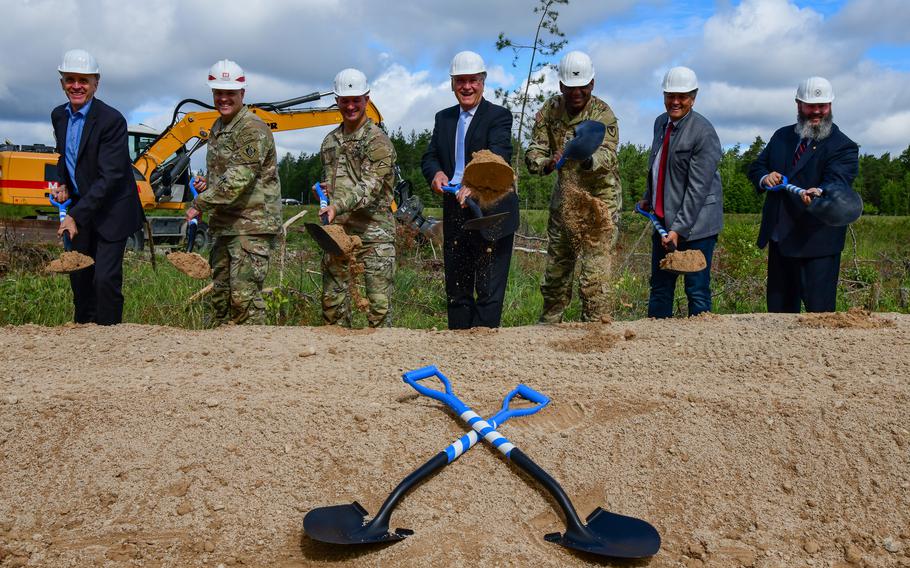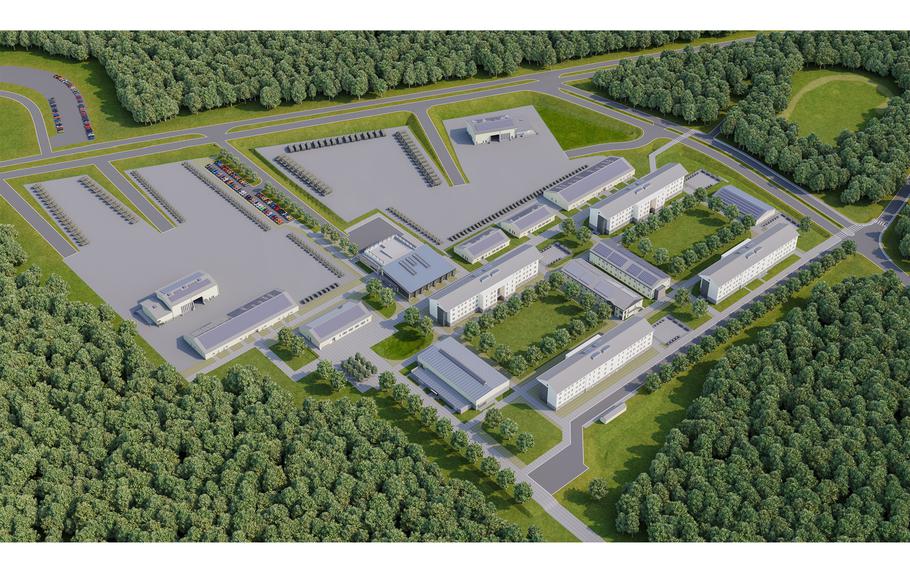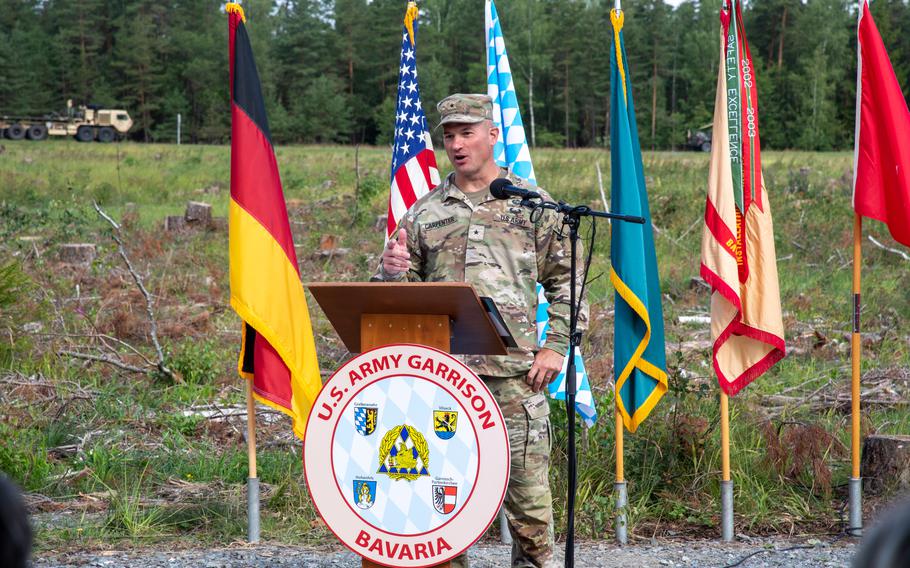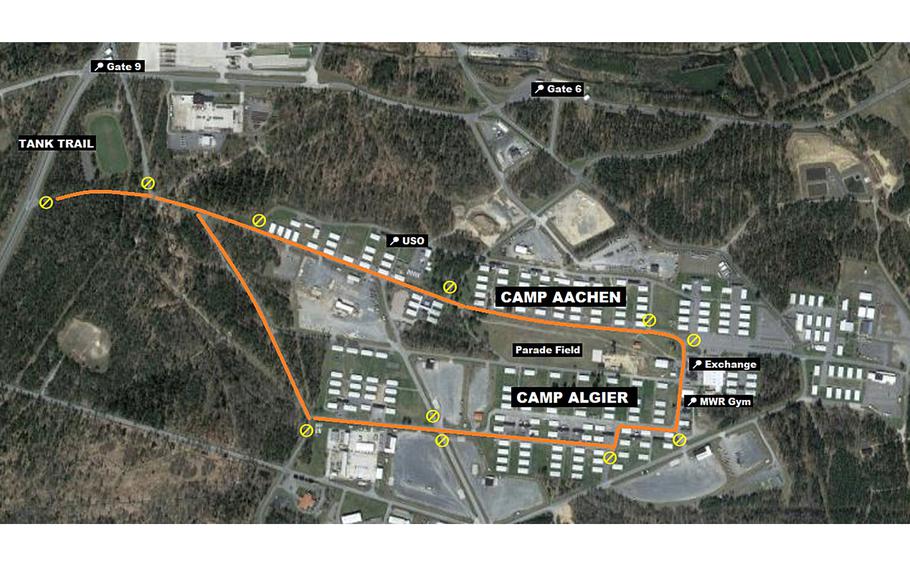
Dignitaries from the Army and Germany break ground on the Operational Readiness Training Complex at the Grafenwoehr Training Area in the German state of Bavaria on Aug. 4, 2023. (Markus Rauchenberger/U.S. Army)
GRAFENWOEHR, Germany — Work is underway on an estimated $1.3 billion expansion at the Army’s sprawling training center in rural Bavaria in what U.S. military officials call a “transformational project.”
Leaders of U.S. Army Garrison Bavaria and German counterparts broke ground Friday on the Operational Readiness Training Complex at the Grafenwoehr Training Area, kicking off what is expected to be 10 years of construction, according to an Army Corps of Engineers statement Tuesday.
The complex is designed to support an entire rotational brigade and is part of a larger construction plan aimed at replacing Camp Algiers and Camp Aachen.
When complete, the Operational Readiness Training Complex will include 50 buildings and have the capacity to house 5,000 U.S. and foreign soldiers while they train at Grafenwoehr.
“It’s very much like a city in that they can do everything they need to do from this platform,” said Col. Dan Kent, commander of the U.S. Army Corps of Engineers’ European district.

This rendering shows several buildings in the Operational Readiness Training Complex, which will be built at the Grafenwoehr Training Area in Germany. German and U.S. Army leaders celebrated the groundbreaking on the project Aug. 4, 2023. (U.S. Army Corps of Engineers)
The complex will feature modern barracks, a fitness center and facilities for equipment maintenance, training and meal service, Kent said.
Groundbreaking took place nearly three years after the announcement of the enormous expansion. The project was in its early stages when former President Donald Trump ordered the number of U.S. forces in Germany to be reduced by 12,000.
But in response to Russia’s invasion of Ukraine on Feb. 24, 2022, and the subsequent war, the drawdown of American forces in Europe has been reversed.
A U.S. base was established in the Polish city of Poznan, and NATO allies on the eastern flank have pressed President Joe Biden to switch from rotational brigades to a permanent presence in their countries.

Brig. Gen. Steven Carpenter, head of 7th Army Training Command, speaks at the groundbreaking ceremony for the Operational Readiness Training Complex in Grafenwoehr, Germany, on Aug. 4, 2023. (Alfredo Barraza/U.S. Army)
The project that began Friday represents the first stage in a larger long-term plan to provide facilities supporting three brigades by adding space to the field camps, which eventually will be replaced, said Peter Barth, the regional program manager for U.S. Army Garrison Bavaria.
The timeline for the entire expansion is more than 30 years, Barth said, adding that construction of the Operational Readiness Training Complex buildings won’t begin until 2024.
The construction costs are set to reach $950 million, while expenses such as environmental compensation, contingencies and quality assurance account for the remainder of the $1.3 billion price tag, Barth said.
He cited the COVID-19 pandemic and the Russia-Ukraine war as among the reasons the project is estimated to cost so much. Over the past five years, the German federal construction cost index has increased roughly 25%, he said.

Some of the construction of the Operational Readiness Training Complex at Grafenwoehr Training Area in Germany is to be at Camp Aachen. (Facebook/U.S. Army Garrison Bavaria)